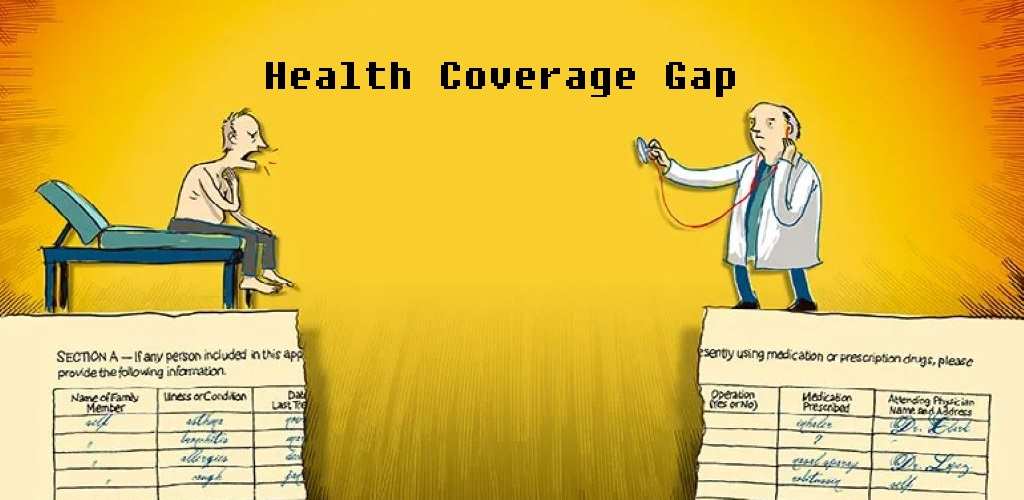Having health insurance is extremely pivotal in case of medical exigencies. The primary aim of buying a health insurance policy is to avoid being financially handicapped in case any health emergency falls.
However, your health insurance can become an expensive affair at some times due to some hidden terms and conditions of the policy. One of them is “Loading”.
In this post, we will understand what is loading in a health insurance policy and how it affects your premium amount.
What Is Loading In Health Insurance?
Loading is an additional cost incorporated in your health insurance policy to cover losses that are greater than the insurer’s expectations. policyholder. Insurers charge greater premiums for high-risk applicants. They view a person as high-risk if they have dangerous work, a history of illness, or problematic claim history.
In simple words, to cover a “risky” individual, an additional charge known as “loading” is applied to the health insurance premium. Here, a risky applicant is one who is susceptible to certain health risks and associated losses.
How Does Loading Function In A Health Insurance Policy?
Let’s understand the functioning of loading with an example!
Mr. Mayank Sharma purchased a mediclaim coverage from a reputable insurance provider a few years prior, and up until recently, he appeared to be really delighted with it. He was able to get his claim for medical expenses from last year’s unexpected heart surgery and it was quickly approved by the insurance provider. Sharma experienced the shock of his life, though, when he attempted to renew his coverage since his premium had significantly increased. When he asked why, he was informed that it was because of a process known as “loading”.
Therefore, only when an insurance firm needs to deal with such a candidate does the idea of loading come into play. The insured person must pay an additional premium for this because it is predicted that the losses for that specific period will be greater than planned.
What Are The Modes Of Loading In A Health Insurance Policy?
Loading is typically configured in one of two ways:
- Higher Renewal Premium
The insurance provider may automatically classify a policyholder who files a claim as high risk because they believe there is a greater chance that they will file another claim for the same ailment. Therefore, using this rationale, insurance firms may legitimately justify raising the renewal premium for the next year.
- Higher Initial Premium
Certain age groups, genders, occupations, lifestyle choices, and other factors are viewed as higher risks by insurance companies. Thus, when a new policy is enrolled, they use “underwriting-based loading” by taking into account numerous risk elements in the policy proposal and quoting high initial premium amounts depending on such risks.
What Are The Factors Affecting Loading Premium?
The following are some of the main aspects that could have an impact on how much loading is applied to your policy:
- Age: The age of the person is one of the factors taken into account when premium and loading amounts in health insurance. This is due to an individual’s increased risk of mortality, hospitalization, and medical expenses from illnesses as they age. As a result, the premium for a 50-year-old will be much greater than for a 25-year-old.
- Gender: Gender is another factor in calculating the amount of loading in a health insurance policy. Due to additional childbearing factors for women, premium amounts are occasionally different than others.
- Medical Status: The individual’s medical condition is another crucial factor. In case a person has recently undergone surgery, is suffering from a significant illness, or has other health conditions, like a high blood sugar level, loading might be used after renewal.
- Lifestyle Choices: Due to their long-established negative effects on health, habitual use of alcohol and cigarettes also has a larger initial premium. In actuality, smokers’ health insurance rates may be nearly twice as high as non-smokers’.
- Type Of Occupation: Given that extended exposure to poisonous and dangerous environments raises the likelihood of health risks, those occupations that call for such conditions are usually compensated with higher premiums.
What Is The Difference Between Loading & Exclusions?
As we’ve seen, loading is typically used by insurers when they believe there is a higher-than-normal likelihood of a claim being made. However, some insurance firms employ the idea of exclusions as opposed to loading. Exclusions are the expenses that are not covered by your insurance policy.
For instance, your insurance policy may not cover costs or treatments for cancer or maternity-related costs. This means you won’t be able to file a claim for these circumstances but the premium amount will remain the same. However, loading is just an extra amount applied to your health insurance policy because of the fact that you are a high-risk bearer in the eyes of the insurance provider.
Things To Consider About Loading Before Buying A Health Insurance Policy
There are some things that you should take into account before purchasing a health insurance policy. Let’s take a look at them:
- Consumers should ask about the justifications for loading, the terms and conditions of loading, the proportion of loading, whether it applies to successive renewals, and whether the loading will rise as the customer’s age increases.
- He/she must also keep in mind that every business has a unique loading policy. This is due to the fact that each firm has unique underwriting standards.
- Loading also allows for reconsideration in the event that a person’s circumstances alter. For instance, the insurance provider may reassess the premium if the person lowers his sugar levels and maintains them if loading was relevant for the candidate due to a raised sugar level.
Frequently Asked Questions
Yes. Loading is also applied to life insurance policies.
In the case of health insurance, the loading premium is a separate payment from the ordinary premium. However, by paying a more premium, riders provide more coverage for serious conditions.
Yes. The cost of your health insurance premiums is based on where you live. Due to the environment, health difficulties, and lack of good food options, the premium is larger in some places. These locations have a relatively higher likelihood of bringing claims for medical care. As a result, the insurance provider will examine your residence before determining your insurance rate by loading premiums.
Yes, loading is justified in some circumstances. But not entirely. The applicant will be given health insurance plans on special terms with significant loading if they have a serious illness like diabetes or asthma, or if they smoke or chew tobacco. This is advantageous for the insurer since it covers losses that are larger than expected due to a “risky” person. It is also beneficial for the insured because it qualifies them for insurance coverage.
However, when applied to someone who has had surgery in the past for a hernia or cataract, loading is inappropriate. Loading plays no part in this because these conditions can be treated easily and provide no danger of developing subsequent difficulties.








